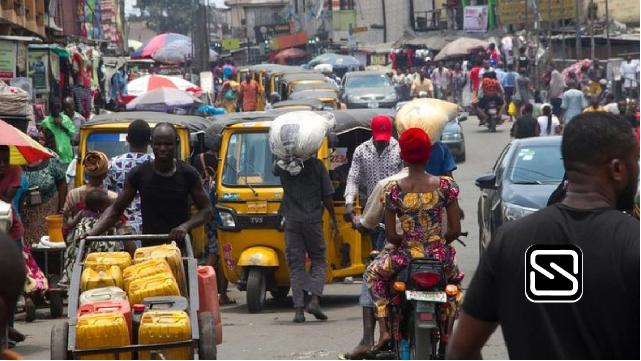Less than 0.5% of Nigerians are using the digital currency a year after the launch
Nigeria’s central bank is turning to the nation’s three-wheeler taxi operators to speed the adoption of the digital currency.
By Staff
As Nigeria commemorated the e-naira’s first anniversary on October 25, critics have claimed that the average Nigerians have still not embraced Africa’s first central bank digital currency (CBDC).
They highlight the relatively small number of downloads for the e-naira wallet in addition to the still-expanding use of cryptocurrencies for money transfers and international payments.
Between January and June this year, peer-to-peer bitcoin traded volumes on Paxful alone amounted to nearly $400 million. The figure is more than half the $760 million that was recorded in the whole of 2021. According to Paxful, Nigerians were resorting to cryptocurrencies and peer-to-peer trading platforms because they provide an opportunity for financial inclusion.
Yet, despite the apparent snub of the CBDC by Nigerians so far, the Central Bank of Nigeria (CBN) is still projecting an eightfold increase in the number of e-naira wallet downloads. The central bank hopes to achieve this via the use of various initiatives that include enabling the unstructured supplementary service data (USSD) functionality to the wallet app.
The CBN has also engaged payment service providers like fintech giant Flutterwave, which has since added the e-naira to its list of payment options for merchants. In one of its latest moves aimed at boosting the use of the CBDC, the central bank is offering a 5% discount to drivers and passengers of motorized rickshaws that pay with the e-naira.
The onboarding of banking consumers and merchants is consistent with phase two activities of the central bank’s delayed implementation of the CBDC, according to a statement made by Bitt, the CBN’s technology partner.
In the third stage, the CBN said it will seek to onboard the Nigerian Trade and Exchange platform. This phase will also include sector-specific tokens for grants and subsidies as well as programmable payments for e-naira payment scenarios.
Remarking on the occasion to mark the CBDC’s anniversary, Brian Popelka, the CEO of Bitt stated,
“This year has been full of firsts for Africa. Being the first provides the opportunity to become the first to find solutions and chart the course for others to follow. Today’s one-year milestone is an exceptional achievement for both the Central Bank of Nigeria and Bitt teams.”
He added, “We look forward to continued partnership on this CBDC deployment journey and to provide additional features to expand eNaira’s value to all Nigerians and everyone, everywhere.”
However, Popelka and the CBN’s optimism is not shared by everyone. With Nigeria facing ongoing foreign exchange shortages, Adesoji Solanke, one of the critics, just like his fellow Nigerians, hoped the e-naira would turn out to be a stable alternative to the depreciating naira.
According to Bloomberg, Solanke insisted the CBN’s digital currency does not address any of these basic use cases, so there should be no surprise at its low adoption rates so far.
Meanwhile, Kingsley Obiora, the Deputy Governor at the CBN, is quoted in the report suggesting that a little push from the Government is needed if the CBDC is to take off.
Additionally, Josh Lipsky, Director of the Atlantic Council’s Geoeconomics Center, reportedly said both the central bank and Government must be involved in efforts aimed at helping more Nigerians become acquainted with the CBDC.
